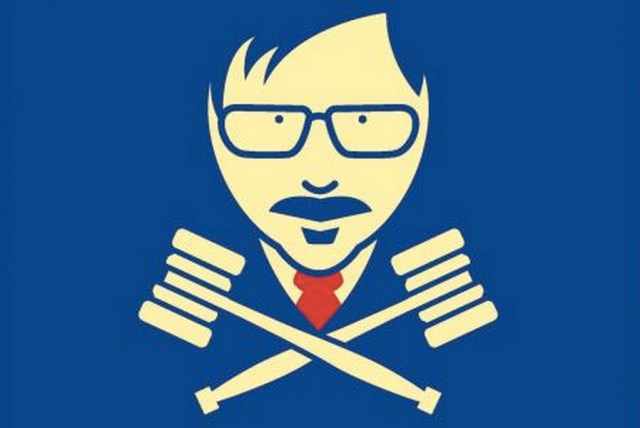When and How Should You Correct Someone’s Grammar? Judge John Hodgman Makes a Ruling
He even brought in friend of Geekosystem Emily Brewster as an expert witness!
In a ruling near and dear to our hearts, purveyor of Internet justice Judge John Hodgman has stepped in to settle a dispute between a married couple about when one should and should not correct another person’s grammar. Hodgman even brought in love-defining-lexicographer Emily Brewster as an expert witness.
You may remember Brewster from an earlier story we did about her work at Merriam-Webster in defining the word “love.” If not, you can go read it when you’re done here. Brewster and her work are fascinating.
As for the case itself, it’s also fascinating. Hodgman hears both sides of the argument about when it’s acceptable to correct someone’s grammar, and when some mistakes should simply be accepted as casual use. They even go into the origin of the “rules” about ending a sentence with a preposition and splitting infinitives. Turns out both are totally fine, unless you’re a playwright bent on making English more like Latin.
If you have an idle hour, you can listen to the episode right here. We really recommend this show.
Unfortunately, the episode doesn’t address correcting people’s grammar online, so we’ll step in here with a ruling of our own. If you find an error in someone’s spelling or grammar online, feel free to tell them about it. Just don’t a be a jerk.
The Judge John Hodgman podcast comes out every Wednesday on the Maximum Fun network. You can get it in iTunes or from MaximumFun.org.
(Judge John Hodgman via Maximum Fun)
- How do you define “love”? We asked Emily Brewster from Merriam-Webster
- Hodgman covered Glee’s cover of Jonathan Coulton’s of “Baby Got Back”
- Hasbro gave us a ruling on what to do with out-of-date Trivial Pursuit questions
Have a tip we should know? tips@themarysue.com
